The life of 58-year-old Svetik Harutyunyan has been divided into black and white periods. After leaving Stepanakert in 2023, she and her family sought refuge in Goris, arriving in a state of despair. Yet, unlike many other refugees, Svetik refused to surrender to fate. Instead, she chose to fight for a better future for herself and her loved ones.
In 2024, Svetik joined the EU-funded “EQUAL – EU for Women’s Empowerment” project, implemented in partnership with the Oxygen Foundation, the European Partnership for Democracy NGO, the Netherlands Helsinki Committee NGO, the Women’s Support Centre, and the WINNET Goris Development Foundation. The project is part of the “Resilient Syunik Team Europe” initiative, which is the joint undertaking of the EU, the European Investment Bank, the European Bank for Reconstruction and Development, Austria, the Czech Republic, Estonia, Finland, France, Germany, Lithuania, the Netherlands, Poland, Sweden and Switzerland, joining as an external partner. The key goal of the initiative is to promote the sustainable socio-economic development of Syunik.
Mrs. Svetik’s delicious mornings
The house was filled with the sweet aroma of freshly baked jam rolls. In the kitchen, Svetik Harutyunyan was carefully trimming the edges of the pastry – it was time to decorate. She would not let us take a photo: “Let me decorate it, I’ll make it beautiful for the photo,” she said with a smile.
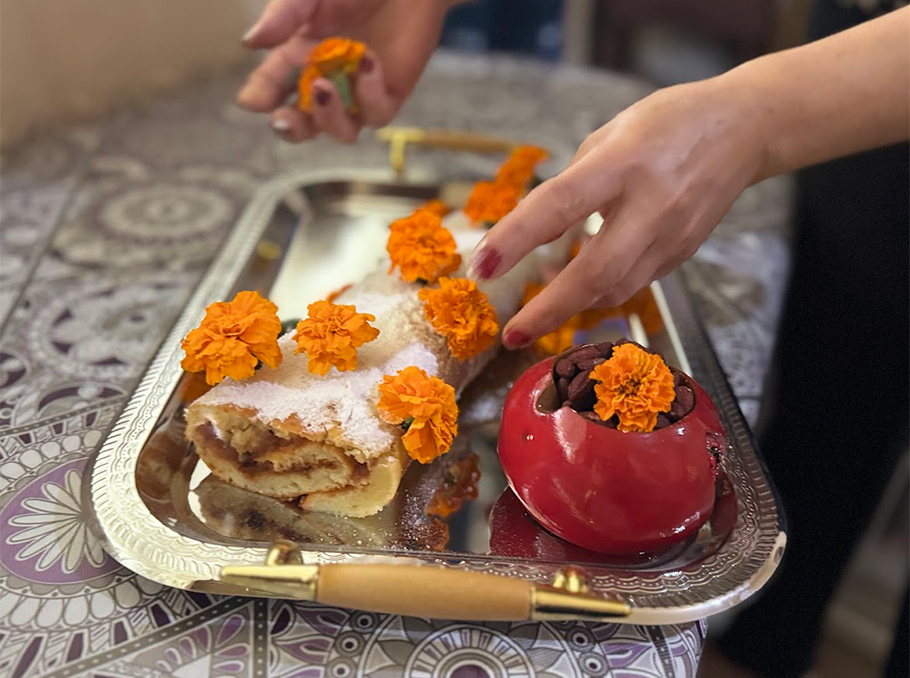
Photo: Mediamax
To my requests that we prepare it together and take pictures of the process, Svetik responded in her calm, confident voice: “I have already baked it, but we will bake again together, do not worry.”
Everything in the kitchen seemed to breathe with the scent of baking. Though the space was small, every dish that came from Svetik’s hands carried warmth, care, and a deep desire to continue life.
From Stepanakert to Goris: The experience of starting over again and again
Fifty-eight-year-old Svetik is originally from Goris. For about 25 years, however, she lived with her family in Stepanakert, following her husband’s work and supporting her son during his military service. Those years were filled with daily routines – work, family responsibilities, and meals prepared with love.
The 44-day war in 2020 forced the family to temporarily relocate to Goris, but they soon returned to Stepanakert, holding onto hope for peace. That hope was shattered in September 2023, when another wave of displacement uprooted their lives once more.
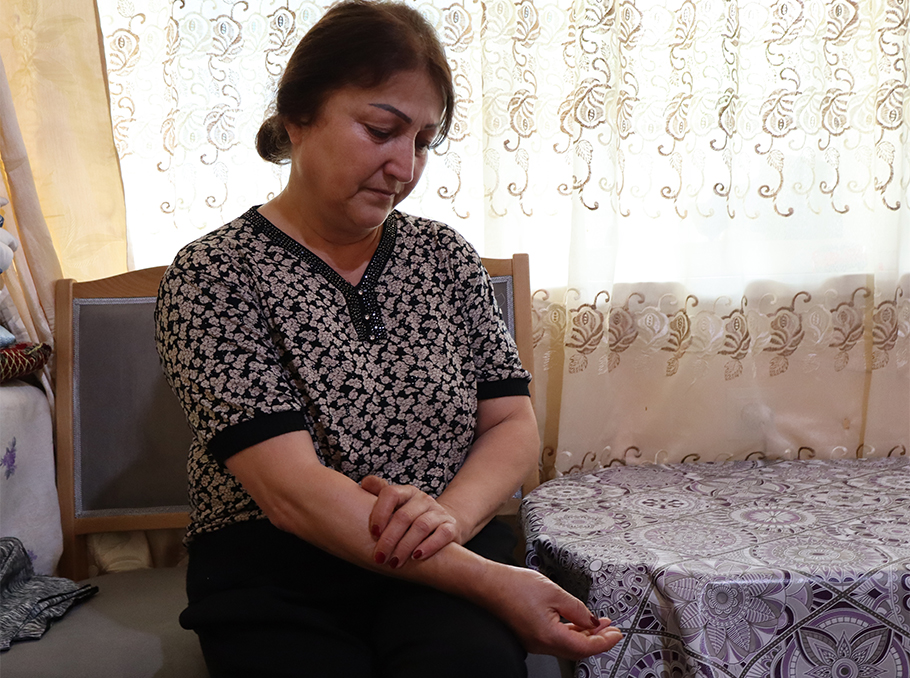
Photo: Mediamax
This new beginning came with deep pain. Only a few months after the forced move, Svetik lost her husband. Today, she lives alone, caring for her disabled son.
“Now I’m both the man and woman of the house. I have to manage everything – my son’s medication, the rent, and making ends meet,” she said.
Life in Goris did not start by choice, but by necessity. Yet, despite the hardship, Svetik has resolved not to be broken. Instead, she draws on her inner strength to carry on and to continue building life anew.
The journey that started with a pancake
Svetik’s story of baking in Stepanakert began almost by accident but soon became a way of life. Her home was located near School No. 8, where a small stall sold baked goods until 11 a.m. After that, students would find the stall closed and complain of being hungry. That was when Svetik decided to try making and selling pancakes for the first time – right after the stall had shut its doors.
“I saw that the children were waiting for my baked goods, so I started making them in large quantities. I did it even better than the shop owner,” she recalled with a smile.
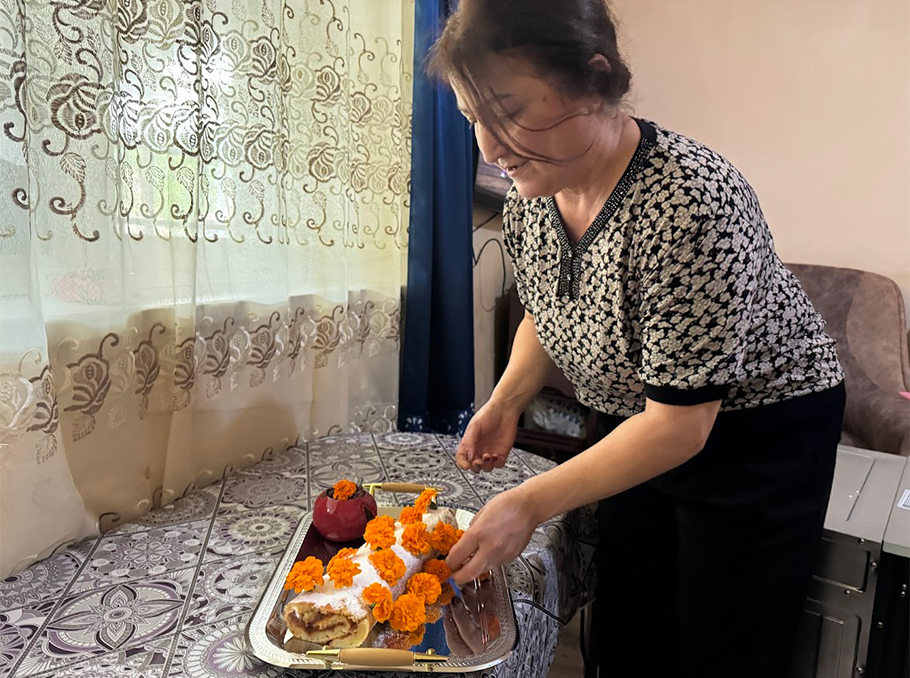
Photo: Mediamax
What began with pancakes quickly grew into more – cookies, breads, pies. Everything was made at home, but always with heart and care. Over time, her kitchen became a beloved corner of the community. The children knew they could buy something from the shop before 11 a.m., and afterward, they would return for a taste of Svetik’s creations…
But when the time came to leave for Goris, the family could take almost nothing with them. “It was just us, my daughter with her baby, and 20 litres of water in the car. I closed the door to my house hoping to return,” Svetik said, without even trying to hide the emotions behind those words.
Today, only memories remain of Nagorno-Karabakh. “My children deleted all the pictures from my phone because I kept looking at them and crying. But my memories cannot be erased. They will stay with me forever.”
From training to self-employment
In Goris, Mrs. Svetik decided to continue her craft – this time in a more organized and competitive way. Although she is a hairdresser, cook, and confectioner, it is pastry-making that has always been closest to her heart.
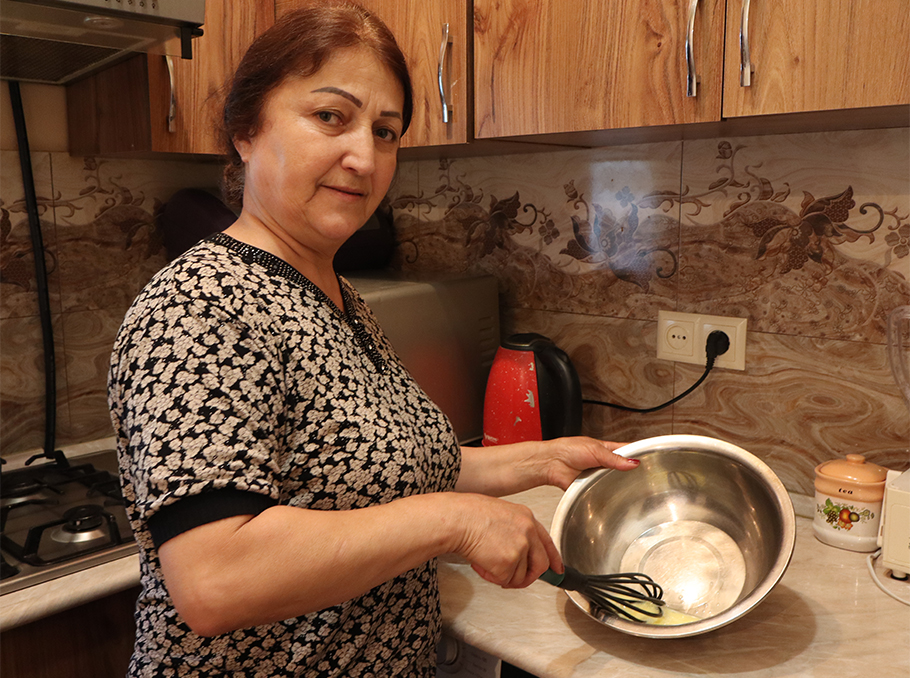
Photo: Mediamax
She participated in the European Union-funded program “EQUAL – EU for Women’s Empowerment,” implemented in cooperation with the Oxygen Foundation, the European Partnership for Democracy, the Netherlands Helsinki Committee, the Women’s Support Centre, and the WINNET Goris Development Foundation.
Through the program, Svetik completed courses in business, pastry, and food preparation. She learned modern cooking methods, product design techniques, and received training at Goris State College. Upon completing the program, she was provided with equipment to expand her pastry-making work.
“This was a huge help for me. Now I can work faster, ensure quality, and offer more variety,” she said.
Today, Svetik prepares not only traditional pastries but also multi-layered cakes, zhingyalov hats (a type of flatbread stuffed with finely diced herbs and green vegetables), homemade halva, and festive sweets for children. Her creations stand out not just for their flavour but also for their story – each piece infused with the smell of home, memories of the past, and hope for the future.
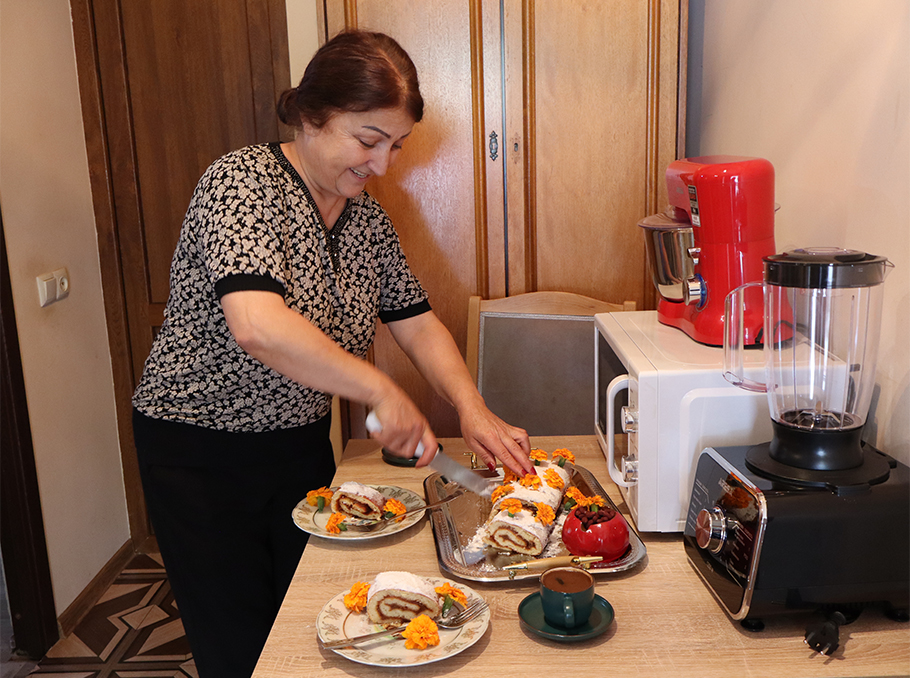
Photo: Mediamax
During the summer, she fulfils individual orders, and in September she returns to preparing school meals. Even in the limited space of her rented one-room apartment, customers are never lacking.
“I am not on social media, but I have so many acquaintances that orders always come in,” she said.
The dream of the future: Her own workshop
Svetik is waiting for state support under the program that helps displaced families purchase apartments in border settlements. The initiative provides 5 million drams per family member. For her and her son, that would amount to 10 million drams.
“It’s impossible to buy an apartment in Goris with that amount of money. Prices are very high and the options are limited. But I want my home to give me not only a place to live, but also a chance to work,” Svetik explained.
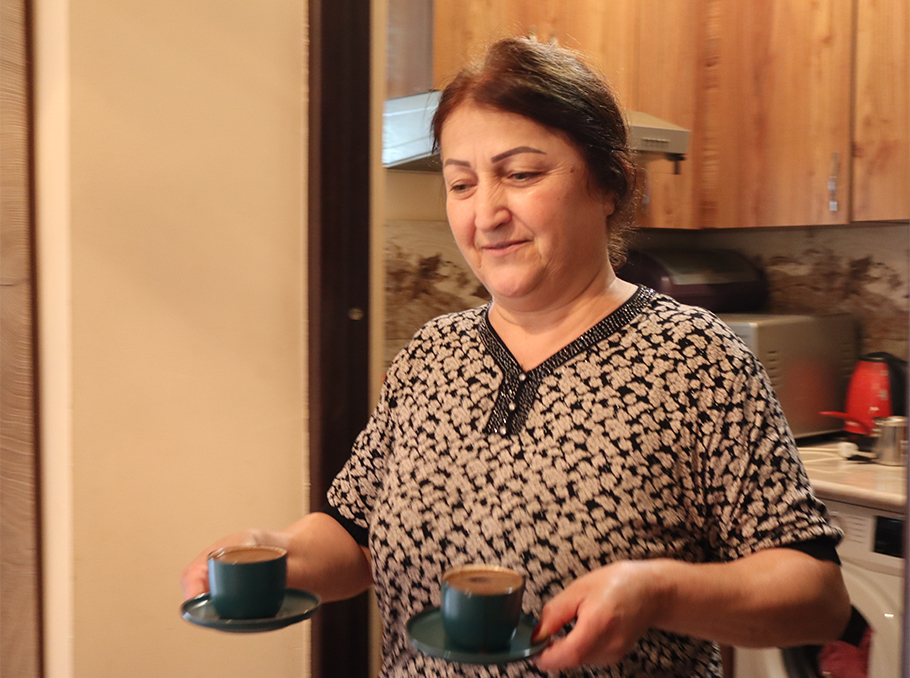
Photo: Mediamax
She already envisions the future clearly: in one of the border villages, she hopes to buy a house where the first floor will become her long-dreamed-of workshop. There, she will bake bread, pastries, cakes, and the traditional zhingyalov hats. She dreams of keeping chickens and cows to have fresh milk and eggs on hand. And, of course, she will continue to make her famous pancakes.
For Svetik, pancakes are no longer just a dish – they have become the symbol of a new beginning.
Anahit Baghdasaryan
“The Resilient Syunik Team Europe” initiative is the joint undertaking of the European Union, the European Investment Bank, the European Bank for Reconstruction and Development, EU
Member states - Austria, Czechia, Estonia, Finland, France, Germany, Lithuania, the Netherlands, Poland, Sweden, and Switzerland also joining as an external partner. The initiative aims to contribute to the sustainable socioeconomic development of the Syunik region.
This article was published with the financial support of the European Union. Its content is the sole responsibility of Mediamax and does not necessarily reflect the views of the European Union.








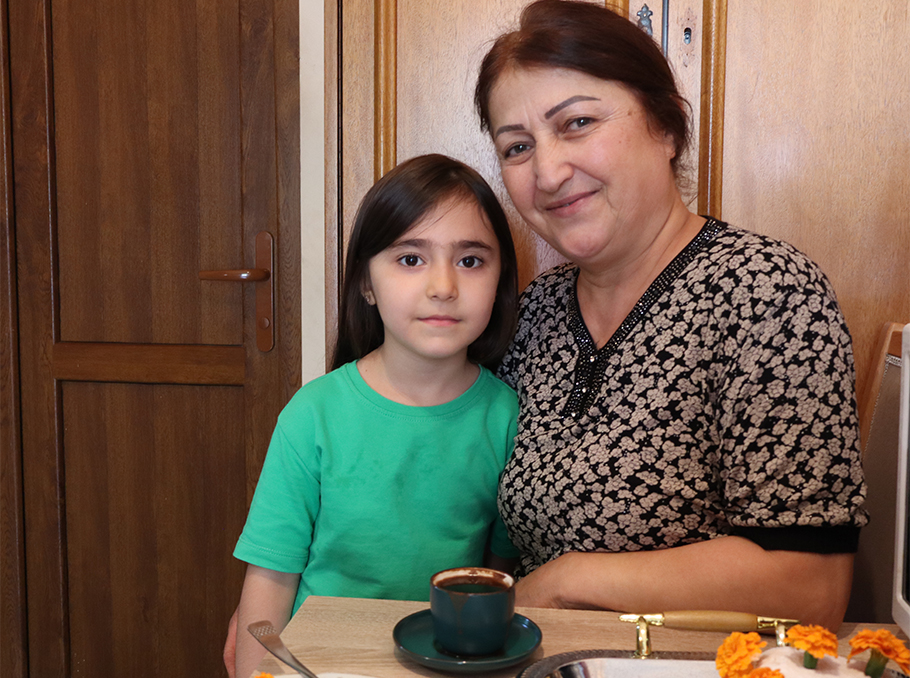
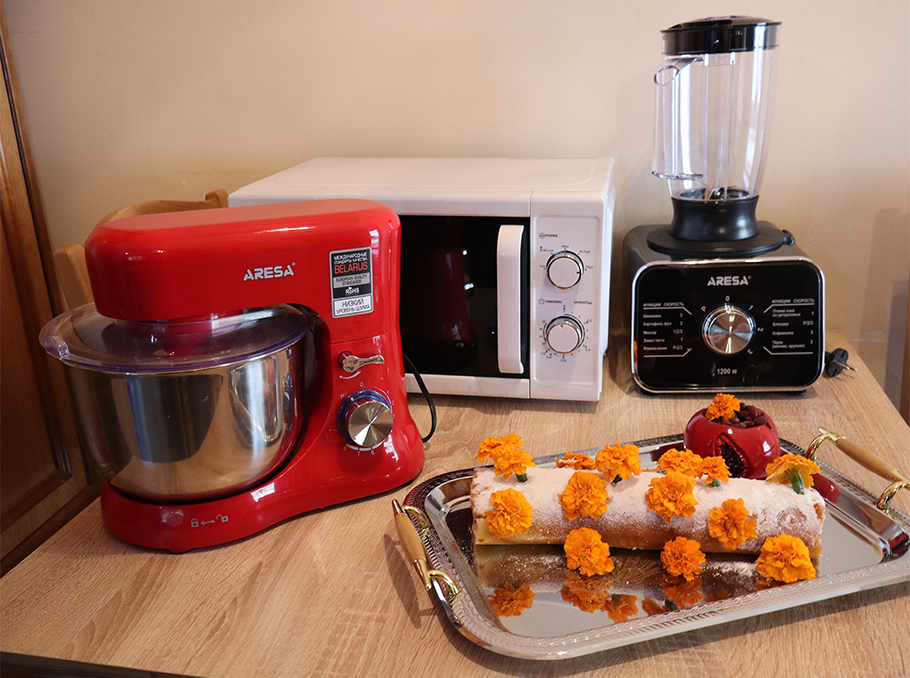

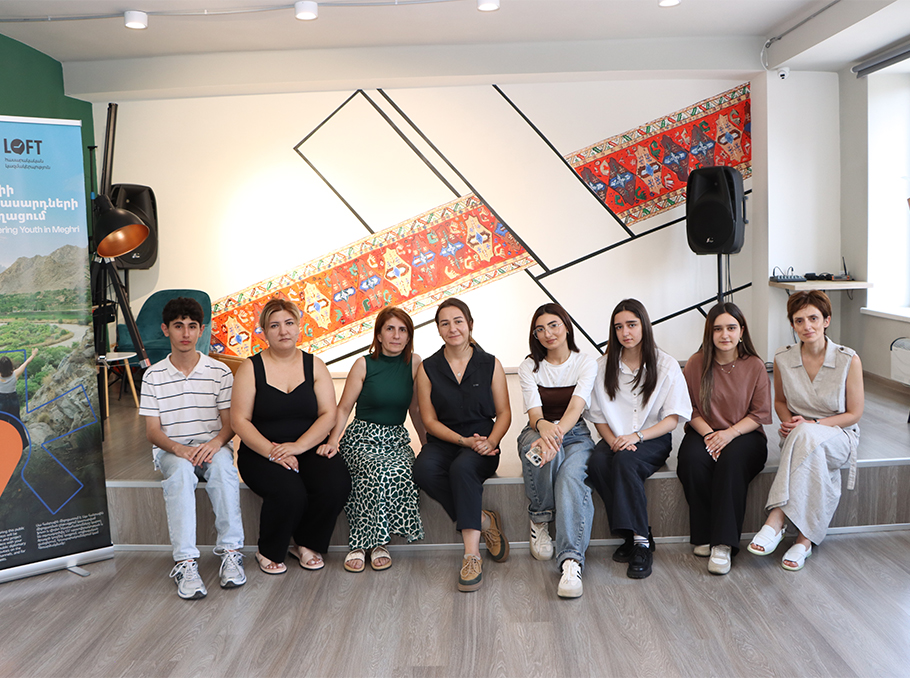
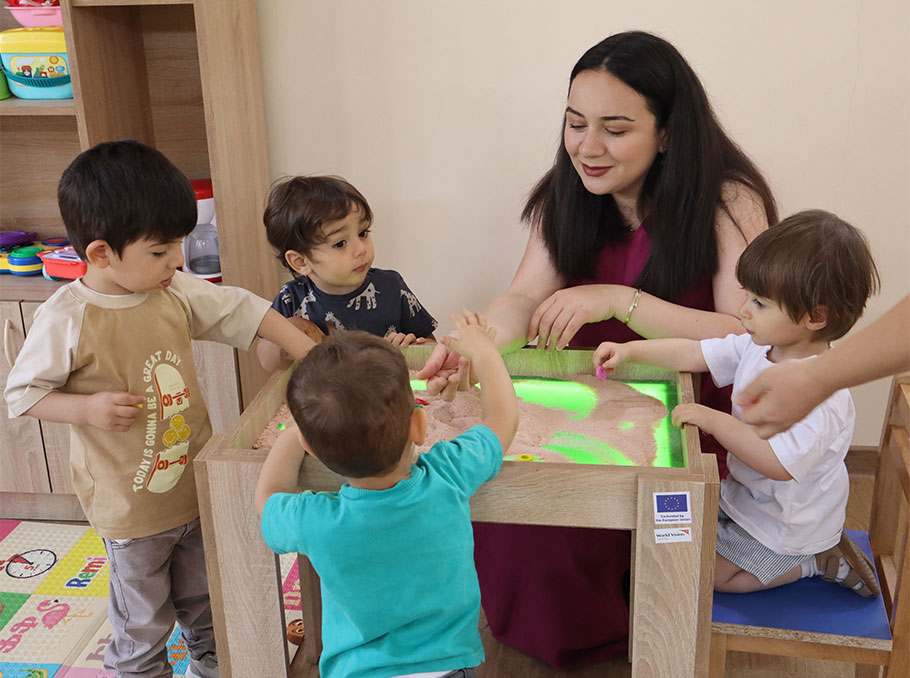

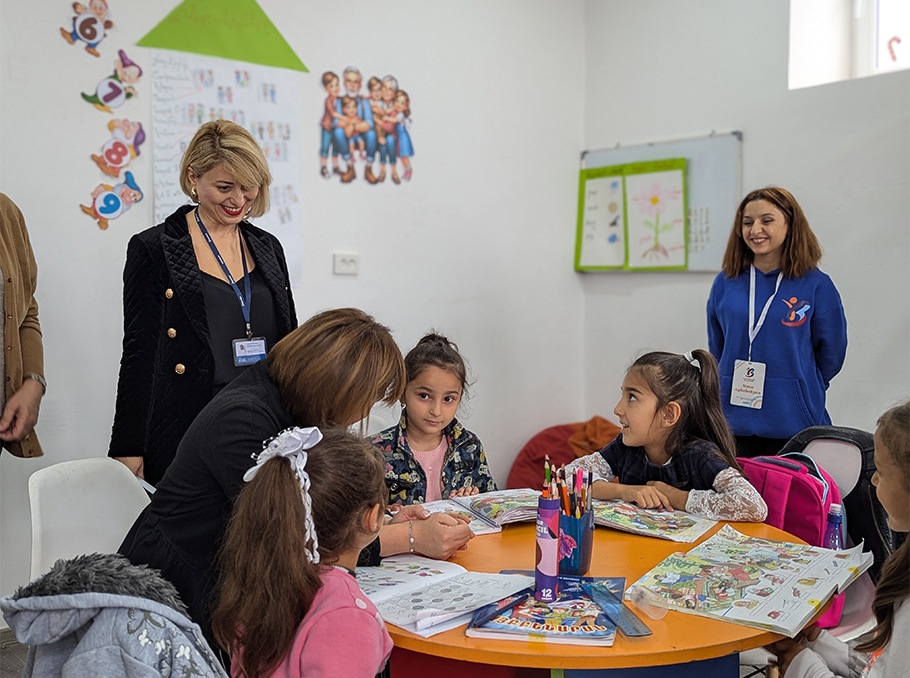







Comments
Dear visitors, You can place your opinion on the material using your Facebook account. Please, be polite and follow our simple rules: you are not allowed to make off - topic comments, place advertisements, use abusive and filthy language. The editorial staff reserves the right to moderate and delete comments in case of breach of the rules.